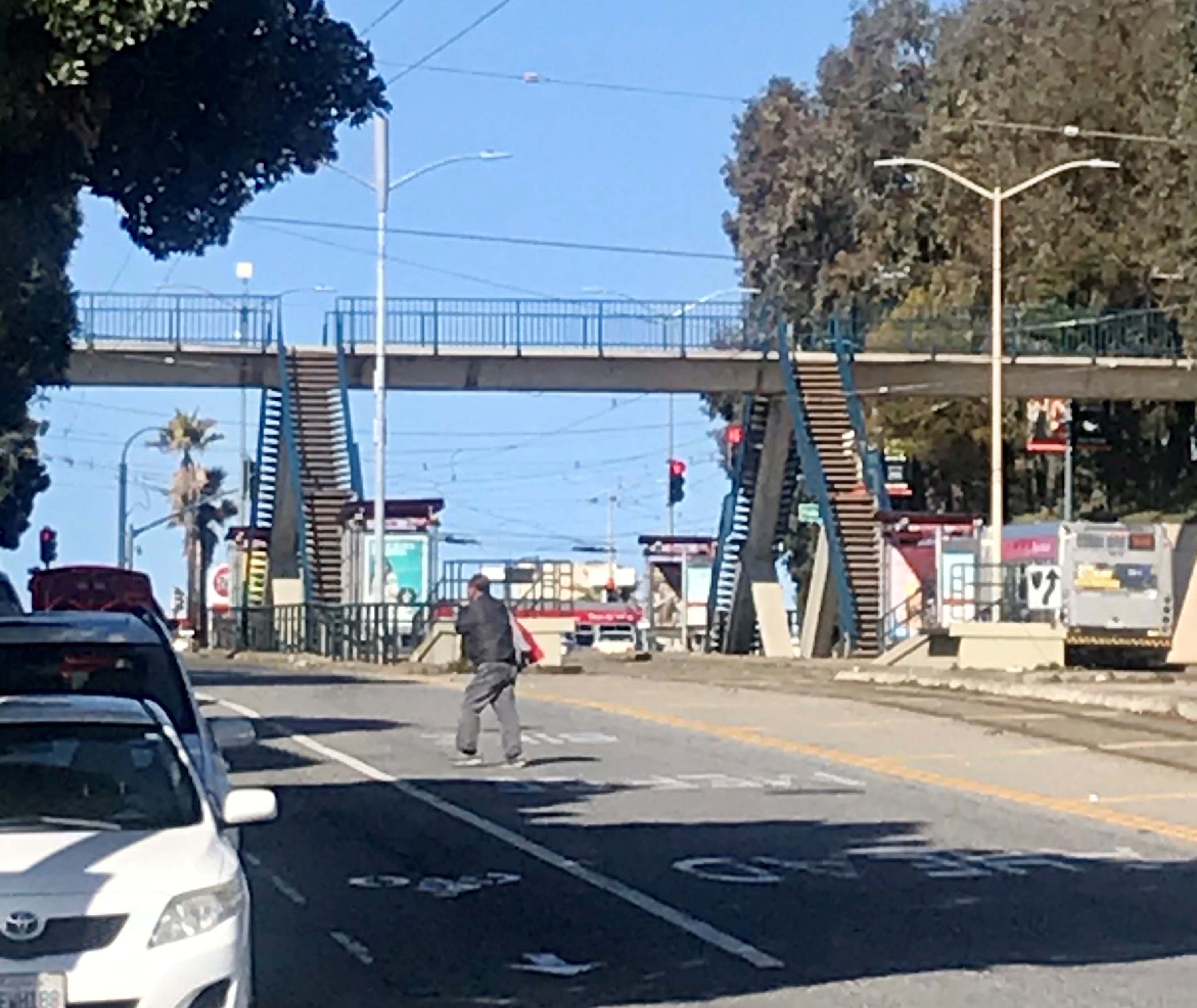
In a continued effort to seek fairness in fines and prevent potentially escalating police stops for jaywalking, the California State Assembly today approved AB 2147, The Freedom To Walk Act, by Assemblymember Phil Ting (D-San Francisco). The legislation legalizes street crossings outside of an intersection when safe to do so, essentially ending law enforcement’s ability to cite pedestrians for jaywalking when roadways are clear. Jaywalking is arbitrarily enforced throughout California with tickets disproportionately given to people of color and individuals of modest means.
“We should be encouraging people to get out of their cars and walk more for health and environmental reasons. But when expensive tickets and unnecessary confrontations with police impact only certain communities, it’s time to reconsider how we use our law enforcement resources and whether our jaywalking laws really do protect pedestrians” said Ting.
AB 2147 is Ting’s second attempt to decriminalizing jaywalking in California. This year’s version makes technical changes to address the concerns stated in the Governor’s veto message of AB 1238 last year. Instead of repealing the state’s jaywalking laws, the latest bill defines when an officer can stop a pedestrian for jaywalking - specified as only when a reasonably careful person would realize there’s an immediate danger of a collision. The bill means fewer working families would struggle to pay the citation often totaling hundreds of dollars, and police wouldn’t be able to use jaywalking as a pretext to detain someone.
California has numerous cases in which a jaywalking stop has gone wrong. In September 2020, San Clemente Police killed Kurt Reinhold. In the Bay Area, Chinedu Okobi was killed more than three years ago in Millbrae by San Mateo County deputies. And in 2017, Nandi Cain was beaten by Sacramento Police. The victims in each of these cases were African American, and video captured each incident. In addition, 2018-2020 data compiled by the California Racial and Identity Profiling Act (RIPA) shows Black Californians are severely overrepresented when it comes to being stopped for jaywalking, up to four-and-a-half times more than their White counterparts.
“The Assembly's passage of AB 2147 is cause for celebration. Current jaywalking laws discourage walking and lead to highly discriminatory enforcement. Black pedestrians, in particular, are cited for jaywalking at exceptionally high rates because current law gives biased police officers too much leeway,” said Rio Scharf, Equal Justice Works Fellow with the Lawyers’ Committee for Civil Rights of the San Francisco Bay Area (LCCRSF). “Safely crossing the street should not be a criminal offense.”
It should also be noted that under-resourced communities often do not have adequate infrastructure, such as pedestrian crossing buttons or crosswalks. In fact, when UC Berkeley doctoral candidate, Marcel Moran, studied San Francisco’s crosswalks, he found lower-income neighborhoods didn’t have as many as wealthier areas.
"The California State Assembly knows it's time to correct historical wrongs. Creating safe public spaces by changing policies that have disregarded the safety, existence, and joy of primarily low-income people of color across the state is overdue. This bill will begin to do that by ensuring that people forced to 'jaywalk' are not punished due to the decades of intentional poor infrastructure in their neighborhoods," said Jared Sanchez, Senior Policy Advocate of CalBike.
Jaywalking laws were enacted in the 1930s by the emerging auto industry, which saw the number of deadly car accidents skyrocket in the prior decade and wanted to shift the blame from drivers to pedestrians. Over the years, street designs primarily considered the needs of drivers, failing to account for people who aren’t in cars.
California has already begun making changes. Up until 2018, it was illegal for people to cross the street at a traffic light when the pedestrian countdown meter began flashing. AB 2147 now heads to the Senate.